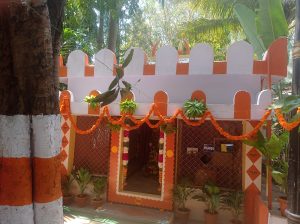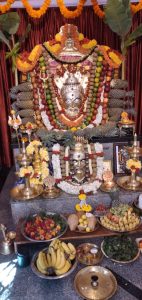
Priyan R Naik
Just as the Shillong Club was established by the British in 1878 and gets recognised today as one of the oldest clubs in India, the Bangalore Club was established ten years earlier, in 1868 and is also considered one of the oldest and most prestigious Clubs in India. Both clubs offer a base for leisure and business within an ambience of India’s rich heritage. Both are located in the heart of the towns and have successfully embraced India’s vibrant tradition and culture. Both clubs are meeting grounds for generations of Shillong’s and Bengaluru’s families over their 150 year history and are renowned for their elegance and sophistication.
Prominent among Bangalore Club’s earlier members were the Maharaja of Mysore and British prime minister Winston Churchill. In fact, a ledger on display in the main building of the club opens to a page that has a list of “irrecoverable debts” written off by the club. One of these includes a sum Rs 13, owed by none other than Churchill himself.
Why only Churchill, the club has another fascinating story to tell, for in its premises is a 400 year old temple devoted to Lord Muneshwar, worshiped as a family deity, a form of Shiva in most Shaivite families. The name itself includes “muni” meaning saint and “ishwara” meaning Lord Shiva, the literal meaning being ‘Muneshwara – the Lord of the Sages’. This temple has endured in this neighborhood for hundreds of years and to this day the deity is worshiped with great devotion and fervor during the Mahashivratri festival.

The myths associated with this temple date back to the past 400 years, going back to the times of Chatrapati Shivaji Maharaj. A middle sized granite stone exists in front of the ‘garbha griha’, according to folklore, this stone was struck by Shivaji Maharaj to earmark the temple precincts. The stone is seen even today, though due to the passage of time, Shivaji’s mark has worn out and cannot be discerned. This temple was popular with Shivaji’s mother Jijabai too and she was supposed to have worshiped here on numerous occasions. The temple’s significance and popularity continued through colonial times when several childless British couples fervently prayed here so that their wishes could be fulfilled.
The idol of Lord Muneshwara is actually placed above the original idol which existed since colonial times. Supposedly more than 150 years old, the metal that makes up the older idol had become too brittle and was chipping away, necessitating the making of a second idol which has been placed above the original one. Club archives do speak of the temple, the manner of worship that was undertaken during earlier times but being in the form of official file noting cannot be accessed, compelling one to rely on hearsay and folklore.
Happily a puja continues to this day. For some time a retired club employee was the ‘de facto’ pujari and conducted the services. After his passing the temple now has a full fledged archak (priest) who leads elaborate Mahashivratri celebrations with the aarti being celebrated with great gusto. The pujari usually leads with a longish prayer in a high pitched monotone, punctuated with sounds from conches with periodic ringing of bells, the finale being the distribution of prasadam. It is believed that what is offered to the deity must be shared with all devotees too so all festivity normally culminates with a sumptuous lunch laid out on banana leaves served by temple volunteers with love and empathy.
The Shiva temple in Shillong is the Mahadev Khola Dham, that has stood for 150 years after an enormous Shivling was discovered there during excavation, the area has now become a shrine to Lord Shiva. Just like the Muneshwara temple in Bengaluru, the festivities during Maha Shivratri, make exuberant devotees flock the temple precincts to participate in three days of festivities culminating in a massive ‘Mela’
(Priyan R Naik is a Bengaluru based contributor at The Shillong Times)



